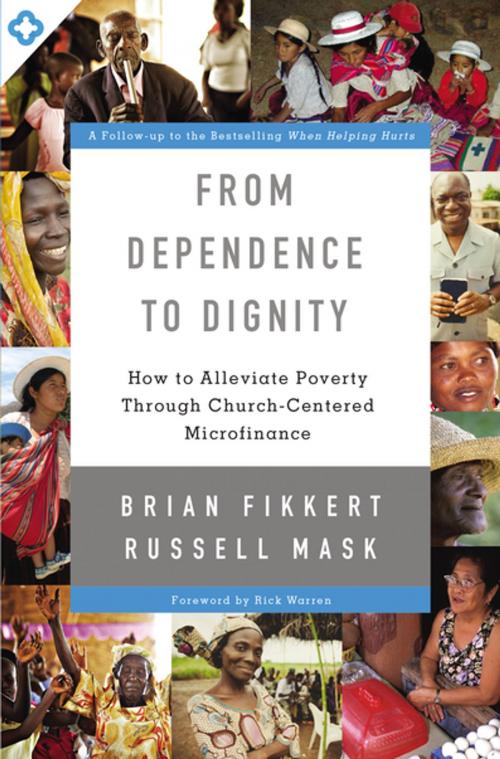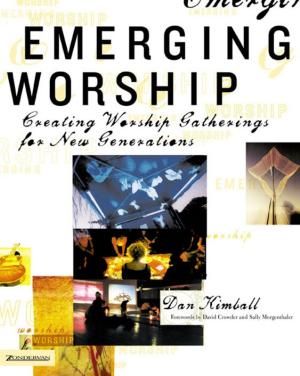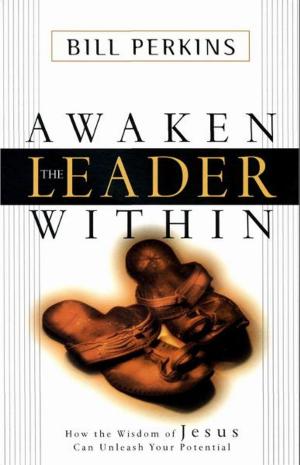From Dependence to Dignity
How to Alleviate Poverty through Church-Centered Microfinance
Nonfiction, Religion & Spirituality, Reference, Stewardship, Christianity, Missions & Missionary Work, Social & Cultural Studies, Social Science, Sociology| Author: | Brian Fikkert, Russell Mask | ISBN: | 9780310518136 |
| Publisher: | Zondervan | Publication: | May 12, 2015 |
| Imprint: | Zondervan | Language: | English |
| Author: | Brian Fikkert, Russell Mask |
| ISBN: | 9780310518136 |
| Publisher: | Zondervan |
| Publication: | May 12, 2015 |
| Imprint: | Zondervan |
| Language: | English |
The church of Jesus Christ finds itself at a very unique moment in history. The average Christian living in the “economically advanced countries” enjoys a level of prosperity that has been unimaginable for most of human history. At the same time, over 2.5 billion people in the Majority World (Africa, Asia, and Latin America) live on less than $2 per day, with many of these people being Christians. Ironically, it is amongst the “least of these” in the Global South that the global church is experiencing the most rapid growth.
All of this raises profound challenges to the global church. How can churches and missionaries in the Majority World effectively address the devastating poverty both inside their congregations and just outside their doors? How can churches in the economically advanced countries effectively partner with Global South churches in this process? The very integrity of the global church’s testimony is at stake, for where God’s people reside, there should be no poverty (Deuteronomy 15:4; Acts 4:34).
For the past several decades, microfinance (MF) and microenterprise development (MED) have been the leading approaches to poverty alleviation. MF/MED is a set of interventions that allow households to better manage their finances and start small businesses. From remote churches in rural Africa to the short-term missions programs of mega-churches in the United States, churches and missionaries have taken the plunge into MF/MED, trying to emulate the apparent success of large-scale relief and development organizations. Unfortunately, most churches and missionaries find this to be far more difficult than they had imagined. Repayment rates on loans are low and churches typically end up with struggling programs that require ongoing financial subsidies. Everybody gets hurt in the process: donors, relief and development agencies, churches and missionaries, and--most importantly—the poor people themselves.
This book explains the basic principles for successfully utilizing microfinance in ministry. Drawing on best practice research and their own pioneering work with the Chalmers Center, Brian Fikkert and Russell Mask chart a path for churches and missionaries to pursue, a path that minimizes the risks of harm, relies on local resources, and enables missionaries and churches to minister in powerful ways to the spiritual and economic needs of some of the poorest people on the planet.
The insights of microfinance can play a tremendous role in helping to stabilize poor households, removing them from the brink of disaster and enabling them to make the changes that are conducive to long-term progress. Moreover, when combined with evangelism and discipleship, a church-centered microfinance program can be a powerful tool for holistic ministry—one that is empowering for the poor and devoid of the dependencies plaguing most relationships between churches in economically advanced countries and churches in poor nations.
The church of Jesus Christ finds itself at a very unique moment in history. The average Christian living in the “economically advanced countries” enjoys a level of prosperity that has been unimaginable for most of human history. At the same time, over 2.5 billion people in the Majority World (Africa, Asia, and Latin America) live on less than $2 per day, with many of these people being Christians. Ironically, it is amongst the “least of these” in the Global South that the global church is experiencing the most rapid growth.
All of this raises profound challenges to the global church. How can churches and missionaries in the Majority World effectively address the devastating poverty both inside their congregations and just outside their doors? How can churches in the economically advanced countries effectively partner with Global South churches in this process? The very integrity of the global church’s testimony is at stake, for where God’s people reside, there should be no poverty (Deuteronomy 15:4; Acts 4:34).
For the past several decades, microfinance (MF) and microenterprise development (MED) have been the leading approaches to poverty alleviation. MF/MED is a set of interventions that allow households to better manage their finances and start small businesses. From remote churches in rural Africa to the short-term missions programs of mega-churches in the United States, churches and missionaries have taken the plunge into MF/MED, trying to emulate the apparent success of large-scale relief and development organizations. Unfortunately, most churches and missionaries find this to be far more difficult than they had imagined. Repayment rates on loans are low and churches typically end up with struggling programs that require ongoing financial subsidies. Everybody gets hurt in the process: donors, relief and development agencies, churches and missionaries, and--most importantly—the poor people themselves.
This book explains the basic principles for successfully utilizing microfinance in ministry. Drawing on best practice research and their own pioneering work with the Chalmers Center, Brian Fikkert and Russell Mask chart a path for churches and missionaries to pursue, a path that minimizes the risks of harm, relies on local resources, and enables missionaries and churches to minister in powerful ways to the spiritual and economic needs of some of the poorest people on the planet.
The insights of microfinance can play a tremendous role in helping to stabilize poor households, removing them from the brink of disaster and enabling them to make the changes that are conducive to long-term progress. Moreover, when combined with evangelism and discipleship, a church-centered microfinance program can be a powerful tool for holistic ministry—one that is empowering for the poor and devoid of the dependencies plaguing most relationships between churches in economically advanced countries and churches in poor nations.















